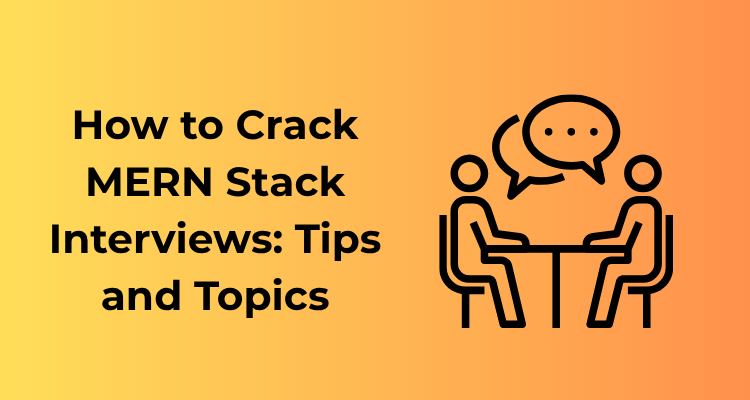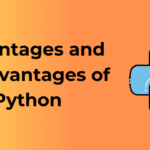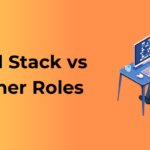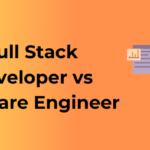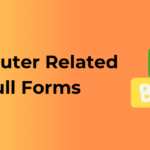So, you’re preparing to ace that MERN Stack interview? Fantastic choice! But before you dive into coding marathons, let’s take a moment to understand what is actually expected from you in such interviews. Overlooking the key requirements is like attempting to bake a cake without knowing the ingredients—it just doesn’t end well!
Know the Core of MERN
Understanding what MERN stands for is critical—it’s the foundation of everything else. MERN encompasses:
- MongoDB: A NoSQL database used for storing data as JSON-like documents.
- Express: A lightweight web application framework for Node.js, simplifying server-side logic.
- React: A powerful JavaScript library for building user interfaces, especially single-page applications (SPAs).
- Node.js: A JavaScript runtime environment for executing JavaScript on the server side.
At its core, MERN is a full-stack solution designed for efficient, scalable web applications. Your interviewers are looking for your proficiency in both understanding and utilizing these tools cohesively.

Have a Project or Portfolio Ready
One key requirement for MERN stack interviews is exhibiting real-world experience—this doesn’t necessarily mean years on the job, but showing that you’ve effectively applied MERN to projects is a big deal. Whether it’s a personal portfolio website, an e-commerce store, or a small social media app—you should have at least 1-2 projects ready to show off.
Your projects should highlight:
- Your ability to structure a full-stack application. Explain how MongoDB, Express, React, and Node.js interact in your project.
- The problem you solved and your approach in breaking down features.
- Scalability and optimization considerations, like efficient API usage and database queries.
Trust us, the “show, don’t just tell” approach works wonders!
Brush Up on the Fundamentals
A MERN stack developer is first a developer. Interviewers almost always assess your understanding of programming fundamentals and web development principles. These can include:
- Understanding API structures: Know how RESTful APIs work and the importance of endpoints.
- Version control systems: Working with Git and GitHub repositories is pretty much an industry standard.
- JavaScript mastery: As the underlying language for the entire stack, ensure you’re comfortable with ES6+ syntax, asynchronous programming (callbacks, promises, async/await), and clean coding principles.
- Security best practices: Be familiar with authentication (e.g., JWT), error-handling strategies, and preventing vulnerabilities like SQL injection or Cross-Site Scripting (XSS).
Confidence in Debugging and Problem-solving
Debugging is every developer’s frequent visitor—a skill proven during interviews by the way you approach errors or inconsistencies in your code. Interviewers want someone who doesn’t panic but methodically analyzes the problem. Get into the habit of asking questions like:
- What is the expected vs. actual behavior of the code?
- Are all components connecting correctly (database talks to server, server talks to client)?
- Is there a bottleneck or inefficiency in my logic?
Soft Skills Count Too!
Believe it or not, technical brilliance without teamwork can be a red flag. Communication, the ability to explain your reasoning, and collaborating effectively are must-haves. When interviewers ask you to whiteboard your thought process or discuss your project decisions, they’re also evaluating your communication skills. Take your time to explain concepts clearly and confidently.
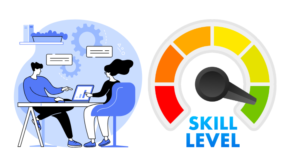
Essential JavaScript Skills Every Candidate Must Master
Alright, picture this: JavaScript is the heart of the MERN stack. Whether you’re handling complex frontend features with React or building backend logic with Node.js, JavaScript is the common denominator. So, naturally, when you’re preparing for MERN stack interviews, nailing your JavaScript skills is non-negotiable.
Why JavaScript Mastery is a Non-Negotiable
If MERN stack development were a car, JavaScript would be its engine. You might have the coolest compartments (like MongoDB or React), but all of it would stall without the familiarity of JavaScript under the hood. Employers want to know: can you use the language effectively to write clean, maintainable, and scalable code? If you’re confident in JavaScript, the rest of the stack will fall into place much more easily.
Key Topics You Need to Know Inside Out
You don’t need to call yourself a JavaScript ninja, but you definitely want to have a firm grip on some of the foundational and advanced concepts. Here’s what you should focus on:
- Core Language Features: Variables, data types, loops, and conditions. A solid understanding of ES6 features — like
let,const,arrow functions, template literals, and destructuring — is a must. - Asynchronous JavaScript: Know how to work with callbacks, promises, and the increasingly common async/await syntax. This is a regular interview topic, so ensure you’re comfortable explaining how JavaScript handles concurrent operations.
- DOM Manipulation: While React simplifies most DOM tasks, understanding native DOM manipulation (thanks to plain JavaScript methods) can help tremendously with problem-solving scenarios during interviews.
- Closures: The word might intimidate beginners, but closures are a fundamental concept often quizzed in interviews. They help you understand variable scoping and how functions interact with their environment.
- Event Loop and Execution Context: Questions here can set candidates apart. Study how JavaScript executes code and handles asynchronous tasks via its event loop. Pro tip: mastering this will not only show technical depth but also impress interviewers.
- Array and Object Methods: Know your go-to tools like
map(),reduce(),filter(),forEach(), and object manipulation techniques. You don’t just need to memorize them — practice, so usage comes naturally. - Error Handling: Learn how to effectively handle runtime errors using
try...catchblocks. Bonus points if you can debug and write cleaner, fail-proof code.
Practicing JavaScript for Interview Prep
By now, you might be wondering, “How do I turn JavaScript theory into hands-on skills?” Here’s an actionable approach:
- Work on Mini Projects: Challenge yourself to build small apps using only plain JavaScript. For example, create a to-do list app, a basic calculator, or a weather application that fetches data from a public API. This will sharpen your problem-solving skills.
- Leverage Coding Platforms: Websites like HackerRank, LeetCode, or Codewars have JavaScript exercises tailored for different skill levels. Be consistent with practice!
- Pair Programming: Find a peer or join an online community and practice solving JavaScript problems together. Talking through a problem sharpens your communication skills (another key interview attribute).
- Study Patterns: Learn patterns like module patterns, factory functions, and IIFE (Immediately Invoked Function Expressions). Knowing how to structure your code demonstrates a deeper understanding.
The Secret Sauce: Confidence in Basics
Remember, no one expects you to memorize the entire JavaScript documentation. What really matters is your ability to solve problems and communicate your thought process. When you’re confident with the fundamentals and can troubleshoot bugs, you’ll stand out in interviews.
Breaking Down React Knowledge for Real-World Problem Solving
So, you’ve decided you’re ready to ace those MERN stack interviews, huh? Great! Let’s dive into one of the most crucial aspects of the stack: React. It’s more than just a trendy library—it’s the glue that holds together the dynamic user interfaces that companies love to show off. But mastering React isn’t just about memorizing its documentation; it’s about knowing how to solve real-world problems with it. Ready? Let’s break it down!
1. The Cardinal Rule: Understand React’s Core Concepts
Before you can jump into building slick, stateful applications, you need to understand React’s foundation. Here are the fundamentals you absolutely should know for any interview:
- How JSX works and why it’s used (hint: it’s just syntactic sugar for
React.createElement()). - Component basics—both functional and class components. While function components are the modern standard, interviewers might still ask about class components to assess your deeper understanding.
- The infamous props vs state debate and when to use each.
- React’s lifecycle methods (like componentDidMount, useEffect, etc.) and how they help you control app behavior at different stages.
Don’t just memorize these—build a mental map of how they work together as a single organism. It’s this conceptual clarity that sets candidates apart.
2. Techniques for Effective State Management
React applications are, at their heart, state-driven. Hiring managers will often want to see how you handle application state in a world that keeps growing more complex! Here’s what you need to know:
- React’s built-in state: Do you know when to use
useStatefor simple cases versus opting for more complex state solutions? - Context API: You won’t always need Redux. Be prepared to talk about state sharing and demonstrate how the Context API solves the problem of prop-drilling for deeply nested components.
- Third-party libraries: While not always mandatory, familiarity with Redux (or others like Zustand, MobX) could give you an edge in interviews. Highlight your experience when asked!
The key here is knowing the trade-offs. React’s strength is its flexibility, so showcase your ability to evaluate what tool or technique fits the problem at hand.
3. Dive into Hooks: The Modern React Magic
If there’s one topic guaranteed to come up in your interview, it’s hooks. They’re React’s secret sauce for writing elegant, functional components. Start by mastering these critical hooks:
useStateanduseEffect: The bread-and-butter hooks for managing local state and side effects.useContext: Perfect for managing shared state without relying on external libraries.useReducer: Know this one for complex state logic (hint: it’s Redux-like but simpler).useMemoanduseCallback: Learn how to optimize performance and avoid unnecessary re-renders.
The best way to get comfortable with hooks is to experiment. Build a small app and try replacing class lifecycle methods with hooks—it’s a game changer.
4. Be Ready for Performance-Related Questions
“How do you optimize a slow React application?” Expect your interviewer to grill you on ways to improve app speed and avoid rendering chaos. Some ideas you should review include:
- Memoizing expensive calculations using
React.memo,useMemo, anduseCallback. - Lazy-loading components with React’s
React.lazyandSuspense. - Avoiding unnecessary re-renders through key props or restructuring components.
Don’t just list these tricks during the interview. Use concrete examples from projects or hobby apps where you’ve solved performance bottlenecks. Show them you’ve been there and done that!
5. Handling Real-World Scenarios
Interviews often test your ability to translate theoretical knowledge into actual solutions. Some common practical scenarios include:
- Implementing forms with controlled and uncontrolled components.
- Fetching and displaying data asynchronously using
fetchoraxios, and managing loading/error states effectively. - Structuring components for scalability and readability.
Practice breaking down these scenarios step-by-step during mock interviews to sharpen your problem-solving approach.
The Backbone of MERN: Express and Node.js Simplified
Ah, Express and Node.js—the dynamic duo that forms the sturdy backbone of any MERN application! If React is the face that users interact with and MongoDB is the brain that stores everything, Express and Node.js are the heart that keeps everything alive and running smoothly. Let’s simplify these big players and learn how to ace them for your MERN stack interviews.
Why Express and Node.js Are Key
First thing’s first—let’s cover why you need to know Express and Node.js like the back of your hand. Node.js is what allows JavaScript to run on the server, opening up a world of possibilities beyond just the browser. Express, on the other hand, is a web application framework built on Node.js that makes creating robust server-side applications (hello REST APIs!) a breeze.
Interviews often test your understanding of how these two work together to handle requests, route traffic, and ensure scalable backends. So, if you’re feeling a little intimidated, don’t worry—we’re about to break it down!
Core Topics You Absolutely Must Master
Here’s a list of fundamental Express and Node.js concepts that you simply can’t skip when prepping for MERN stack interviews:
- Understanding the Event Loop: Node.js is all about non-blocking, asynchronous operations. Know how the event loop works and why it’s essential for the backend’s speed.
- RESTful Fundamentals: Review how to create RESTful APIs—CRUD (Create, Read, Update, Delete) operations are your bread and butter.
- Middleware Mastery: Middleware is like the Swiss Army knife of Express. Know how it works, what “next()” does, and how it handles tasks like logging, error handling, and authentication.
- Routing Basics: You should be able to define dynamic routes and route parameters fluently. Nested routers? Even better!
- Authentication & Security: If you can discuss implementing JWT (JSON Web Tokens) or OAuth, you’re golden. Security is always a high priority for backend development.
- Handling Data: Be prepared to integrate with MongoDB either via the native driver or ORM libraries like Mongoose. Knowing how to handle both HTTP requests and responses efficiently doesn’t hurt either.
Common Interview Patterns
Most interviewers aren’t going to let you skate by without digging into your real-world problem-solving skills using Express and Node.js. Here are some common scenarios they might toss your way:
- Build a Basic REST API: Expect to write endpoints for creating, reading, updating, and deleting resources. Bonus points if you implement pagination or error handling!
- API Performance Questions: Issues like optimizing slow APIs or using caching strategies often come up. Be prepared to explain how tools like Redis fit into the Node.js ecosystem.
- Error Handling Challenges: You might be asked to handle unexpected errors gracefully. Pro tip: Always use centralized error-handling middleware!
Advice for Acing It
Practice is non-negotiable. Start with basic projects like a “To-Do” app and progressively dive into more complex systems, such as an e-commerce store. Platforms like Postman can help you test APIs effectively, while debugging tools like Node.js Inspector will make you a pro at spotting bugs quickly.
Finally, always strive for clarity in your answers. Employers love clear thinkers—so when explaining how Express routing works or why Node’s event-driven architecture makes sense for servers, use metaphors, diagrams, or real-world analogies to stand out!
MongoDB Must-Knows for Interview Success
Ah, MongoDB. This elegant NoSQL database plays such a critical role in the MERN stack that nailing down the fundamentals here can really set you apart in an interview. But here’s the deal: MongoDB might seem simple at first glance, but interviewers love to dig deeper to gauge how well you understand its real-world applications. Don’t worry; I’ve got you covered! Let’s break down what you absolutely need to know to shine.
1. What Makes MongoDB Unique?
Before diving into the nitty-gritty, understand why MongoDB is the go-to database for modern full-stack apps. MongoDB is a NoSQL database, so instead of storing data in traditional rows and columns, it organizes information into documents using a flexible, JSON-like format. Companies love this because it’s easier to scale and adapt to changing data requirements.
- Dynamic Schema: You can evolve your database structure without downtime. Perfect for agile development environments!
- Better Scalability: Horizontal scaling makes it efficient for handling large volumes of data.
- Speed: Document indexing makes querying super fast compared to some traditional RDBMS setups.
2. Key MongoDB Concepts You Should Master
The interviewers will likely assess your grasp on MongoDB fundamentals. Here are some critical concepts they might ask about:
- CRUD Operations: Know how to Create, Read, Update, and Delete documents efficiently. Practice commands like
insertOne(),find(),updateOne(), anddeleteMany(). - Indexes: Understand why and how you use indexes — they drastically improve query performance. Know how to create and manage them with
createIndex(). - Aggregation Framework: Learn to use the aggregation pipeline to perform advanced data transformations and analytics. Think grouping, filtering, and taking averages of big data sets.
- Relationships: While MongoDB is generally schema-less, understand how to model relationships using techniques like embedding and referencing. They may ask you to make trade-offs between the two approaches.
- Sharding and Replication: These terms sound fancy, but they’re just about scaling and reliability. Know when to shard your database for distributed storage and how replication ensures fault tolerance.
3. Common MongoDB Challenges and How to Handle Them
Great developers don’t just know the good parts of a tool—they also understand its quirks. Be prepared to discuss challenges like:
- Data Integrity: MongoDB trades off strict transaction support for speed. Understand MongoDB transactions (as of version 4.0) to ensure multi-document consistency when needed.
- Performance Issues: Be ready to troubleshoot slow queries or inefficient indexing. Always advocate for proper schema design!
- Scaling Complexities: Know what to do when sharding doesn’t go as planned, or when the hardware needs an upgrade during scaling dilemmas.
4. Interview Simulations: How Can You Prepare for Questions?
Practice makes perfect, right? Here are a few sample MongoDB scenarios that can help you prep:
- Database Design Question: Given an e-commerce platform, how would you design collections for products, users, and orders? Explain your choice of embedding vs. referencing for relationships.
- Query Optimization: Imagine you have a massive dataset, and queries are taking forever. How could you optimize performance with indexing?
- Real-world Usage: Suppose you need to calculate the average rating of products in a collection. How would you use the aggregation pipeline to achieve this?
5. Pro Tips to Wow Your Interviewer
Let’s kick it up another notch! While fundamentals are key, here are some bonus points to impress the interviewers:
- Show curiosity about Atlas: MongoDB Atlas is a fully-managed cloud database service. This is increasingly popular with modern companies—express familiarity with its setup.
- Discuss your experience with alternative NoSQL databases: If you’ve dabbled in others like DynamoDB or Firebase, briefly compare them to MongoDB.
- Share a practical example where MongoDB solved a real-world problem in one of your projects. Storytelling is a powerful way to demonstrate your expertise!
Commonly Overlooked but Crucial MERN Stack Interview Mistakes
If you’re gearing up for a MERN stack interview, congratulations—you’re about to embark on a career path that’s both rewarding and dynamic! However, even the most confident developers often stumble on some easily avoidable pitfalls. Ready to discuss these commonly overlooked, yet crucial mistakes? Let’s dive in!
1. Ignoring the Importance of Fundamentals
In your excitement to showcase the newest JavaScript pattern or the latest React hook, it’s easy to overlook the basics. **Don’t skip foundational concepts** like closures, the event loop in JavaScript, or even CRUD operations in MongoDB. Interviewers love to dig into how well you truly “get” the underlying concepts. Knowing how the MERN stack operates at its core will give you more confidence and stronger answers.
2. Overreliance on Frameworks and Libraries
Yes, React is crucial, and using Express with Node.js makes API building super smooth. But some candidates lean too heavily on pre-built libraries without truly understanding what’s happening under the hood. For example:
- Can you write a custom hook in React if needed?
- Would you be comfortable setting up middleware by hand in Express?
These types of questions often trip people up because the habit of relying on libraries can mask an incomplete understanding of the underlying logic. Make sure you’re comfortable solving problems both with and without external tools.
3. Skipping Test-Driven Development (TDD)
You may think, “Ugh, testing is something I’ll deal with after I get hired!” Sorry, but no. Many developers overlook TDD, which is a big missed opportunity. Writing tests shows you’re thoughtful and care about code quality. At the very least, be prepared to talk about:
- Testing React components with tools like Jest and React Testing Library.
- Unit testing Node.js functions using Mocha or Chai.
Taking time to master testing techniques can help set you apart from the crowd.
4. Not Balancing Technical and Non-Technical Skills
MERN stack jobs aren’t just about technical wizardry! If you can build a killer full-stack app but fumble when explaining your choices clearly, it may hurt your interview performance. Focus on communicating your thought process effectively:
- Why did you choose React over another front-end framework?
- How does your database structure handle scalability?
Clear communication demonstrates that you’ll collaborate well with a team.
5. Failing to Debug Under Pressure
Nothing sends chills down candidates’ spines more than being asked to debug a code snippet live. It’s nerve-wracking, yes, but it’s also your chance to shine! Avoid these mistakes:
- *Rushing through*: Instead, calmly step through the logic.
- *Throwing spaghetti at the wall*: Instead, use deliberate debugging techniques—console logging, stepping into functions, and so on.
Practice debugging regularly so it feels second nature, even under the watchful eyes of an interviewer.
6. Forgetting About Scalability
Scalability is a word you’ll likely hear a lot during your interview. Candidates sometimes assume this only pertains to MongoDB, but scalability in the MERN stack is much broader. Be ready to discuss:
- How horizontal scaling can be efficiently handled in Node.js with clusters.
- How you’d organize your database for speed as your app grows from 100 to 1 million users.
Even if your app’s primary feature is a simple to-do list, interviewers want to hear how you’d prepare for **theoretical surge demands**.
7. Not Practicing Mock Interviews
This one is big. Many candidates avoid practicing technical and behavioral mock questions, thinking they’ll “just wing it.” Spoiler alert: winging it doesn’t work. Mock interviews help sharpen your timing, communication, and problem-solving approach.
Be sure to simulate a real interview environment with a friend or on platforms like Pramp. This practice can reveal areas that need improvement before the big day.
Strategic Practice Roadmap: Coding Drills and Mock Interviews
If you’re aiming to crack a MERN stack interview, preparation is your superpower! While books, tutorials, and guides are invaluable, there’s no substitute for **hands-on practice**. Let’s walk through a strategic roadmap to help you master coding drills and excel in mock interviews seamlessly. Ready? Let’s dive in!
1. Get Cozy with Coding Drills
Think of coding drills as your daily mental workout. They help sharpen problem-solving skills and instill confidence when faced with challenging interview problems. Here’s how to make the most of them:
- Start with Fundamental Patterns: Master basics like recursion, arrays, and string manipulations. Sites like LeetCode, HackerRank, and Codewars provide excellent practice problems.
- Tackle Frequently Asked Questions: Focus on MERN-specific coding scenarios such as rendering dynamic UI components in React or designing scalable backend logic with Node.js.
- Simulate Time Pressure: Interviewers typically watch for how you perform under pressure. Mimic real-world situations by setting time constraints on solving coding challenges.
- Analyze Your Solutions: Don’t just solve problems; understand why your approach works and compare it with others. Look for ways to optimize and refactor your code.
Keep in mind, coding skills grow with consistency. Even dedicating 30 minutes daily can make a significant difference over time!
2. Practice Mock Interviews Like a Pro
Mock interviews aren’t just about testing your knowledge—they’re about building confidence and learning to present yourself effectively. Here’s how to nail them:
- Find a Good Mock Interview Partner: Platforms like Pramp and Preplaced connect you with peers or professionals for a simulated interview experience. You can also collaborate with friends or colleagues familiar with the MERN stack.
- Role-Play Different Scenarios: Practice being interviewed for both technical and behavioral questions. Switch gears seamlessly from explaining your thought process to discussing past projects.
- Focus on Communication: It’s not just what you know but how you explain it. Speak clearly, articulate your ideas step-by-step, and don’t shy away from admitting when you’re unsure.
- Request Constructive Feedback: After every session, ask for honest insights on how you performed. Are you explaining your code effectively? Are you rushing? Use this feedback to improve consistently.
3. Pair Theory with Real Code
To bridge the gap between theoretical knowledge and practical application, build **small real-world projects**. For example:
- Create a to-do app in React with MongoDB for storage.
- Build a simple blogging platform using Node.js and Express.
- Experiment with dynamic routing and API integration to simulate real project requirements.
These projects don’t just make excellent portfolio pieces but also give you talking points in interviews.
4. Review and Iterate
Finally, treat your roadmap as a living document. Regularly track your progress, revisit areas you find challenging, and refine your practice strategies. Remember, growth happens in layers—it’s okay if you don’t get everything perfect in one go!
With consistent effort, the right resources, and a bit of grit, you’ll be walking into your MERN Stack interview feeling like a rockstar. You’ve got this!

